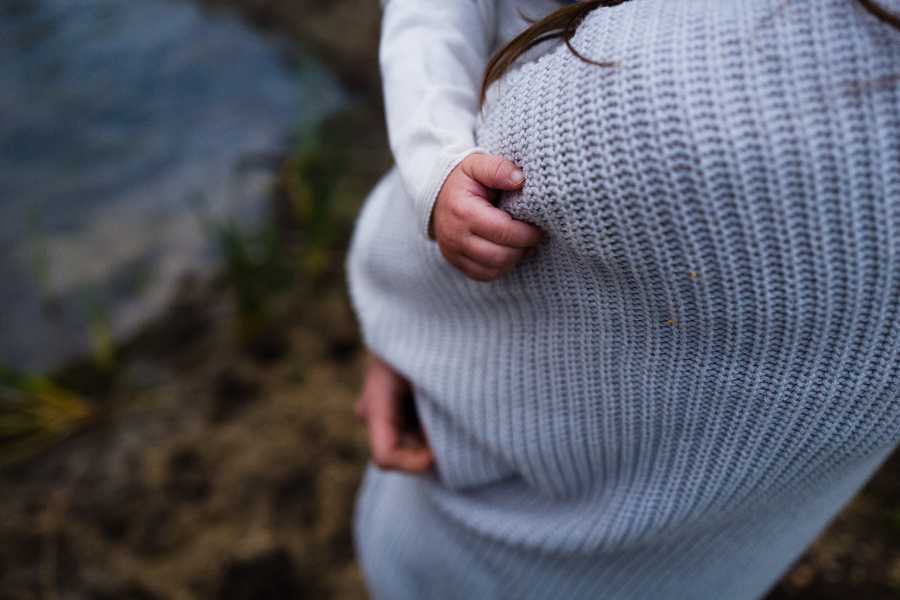The English High Court has made a non-biological mother through US surrogacy her son’s legal mother via adoption – rather than a parental order – in an important new UK court ruling. We are delighted to have represented the mother in the case, reported as J v K (2021).
The first English international surrogacy case of its kind, it establishes that there is a viable alternative legal path to securing parentage for parents through international surrogacy who do not have a biological connection with their child.
What was the background to this non-biological surrogacy case?
J (the British mother) had unsuccessfully tried to conceive a child as a solo mother through fertility treatment and egg donation, and was advised to try surrogacy. Like many UK parents she wanted her surrogacy journey to be safe and legally recognised, and so engaged an agency in California to match her with a gestational surrogate and provide support.
Her son was subsequently conceived with the help of an egg and sperm donor, and born through surrogacy in the USA. J was present at the birth and immediately assumed her son’s care, bringing him home to the UK and securing British nationality for him from the Home Office.
She then applied to adopt him, with an adoption order ultimately granted by leading specialist surrogacy judge Mrs Justice Theis in the High Court.
Why did this single mum need an adoption order?
Under Californian surrogacy law – which recognises everyone’s shared intention – J was her son’s legal mother and sole parent, and she was registered on the US birth certificate as his mother. However, UK assisted reproduction law said that the woman who gave birth (her surrogate, who had no biological connection with her child) was her son’s legal mother. For J, this meant that she was her son’s legal mother in the USA, but she had no legal connection with him in the UK.
Lack of immediate legal parenthood is common for UK parents who have a child through surrogacy in the USA, but most are able to apply for a parental order under the Human Fertilisation and Embryology Act 2008 to resolve it. Parental orders are the intended UK legal solution for surrogacy, and they give the parents secure parenthood as well as a UK birth certificate for their child. Parental orders are now a well tested path, with hundreds of international surrogacy cases heard by the High Court each year.
However, to be eligible for a parental order one or both of the intended parents must be the child’s biological parent. Since J was single and had conceived with donor eggs, she did not meet that criteria. An adoption order was the only other possible legal remedy which could fully reassign parenthood to her for UK law purposes.
What is the significance of the court granting an adoption order to a non-biological parent?
An English adoption order has never previously been granted following international surrogacy, which means that it has until now been an entirely untested UK legal path in these circumstances. There were some potential legal obstacles, given that adoption law restricts payments and the movement of children, restrictions which might have proved problematic in the context of a commercial cross-border surrogacy arrangement.
The court’s decision is therefore significant, both because the judge said she was satisfied that these restrictions did not apply, and because the case has tested what an English adoption process looks like for a child born through international surrogacy.
Going forward, that is hugely significant for other parents who conceive through international surrogacy but do not qualify for a parental order. We have worked with a number of families in this situation, some leaving their child’s status unresolved and insecure in the UK. J’s case establishes that there is a viable alternative legal solution to a parental order, and enables other parents to follow in her footsteps with more confidence.
Should the law be changed for non-biological parents?
Since parental orders were first introduced in 1994, they have become increasingly more inclusive as attitudes to more diverse family forms have evolved. Originally only different-sex married couples could apply, but in 2010 the legislation was amended to include same-sex and unmarried couples, and in 2019, single parents were added too. The courts have also played a role, interpreting the law flexibly to enable parental orders to be made where parents have separated, died or been in co-parenting rather than intimate partnerships.
However, non-biological parents remain excluded. The exclusion affects some infertile couples, but many single mothers, since women who need the help of a surrogate to carry their child often suffer medical or fertility issues which also mean they are unable to provide their own eggs. The discrimination is arbitrary too, given that in other circumstances women who are not their child’s biological mother can become a legal parent: where they carry the pregnancy, or where they have a child through surrogacy and are granted a parental order together with their partner. There is no general principle in UK law that a woman must be her child’s biological mother to become his or her legal mother.
We should also remember that at the heart of every surrogacy case is a child, born into a family that desperately wanted them and chose to conceive them. The fact that surrogacy agreements are recognised in other jurisdictions like the USA means that children are being born in a wide range of circumstances, and all deserve the same status, legal security and recognition that most other children take for granted, no matter how they were conceived.
As ever, we are pleased to be making new law and helping to make diverse modern families possible and legally secure. Having won the court ruling in 2016 which led to the change in the law which allowed single parents to apply for parental orders, we are now doing all we can to find solutions for the categories of intended parents who remain excluded. We will continue to push for inclusion through our legal cases and through our policy and campaigning work.
The UK’s leading surrogacy lawyers
Find out more about how we support families through surrogacy



